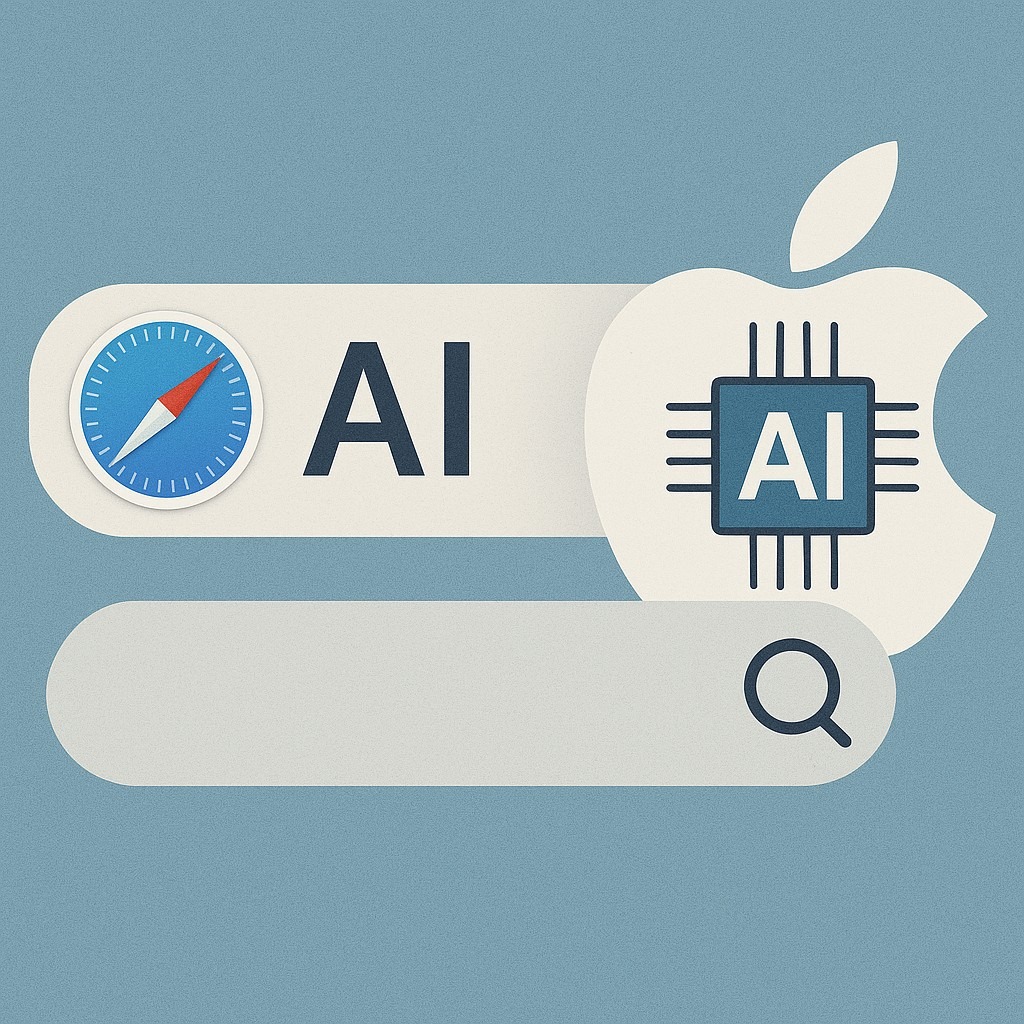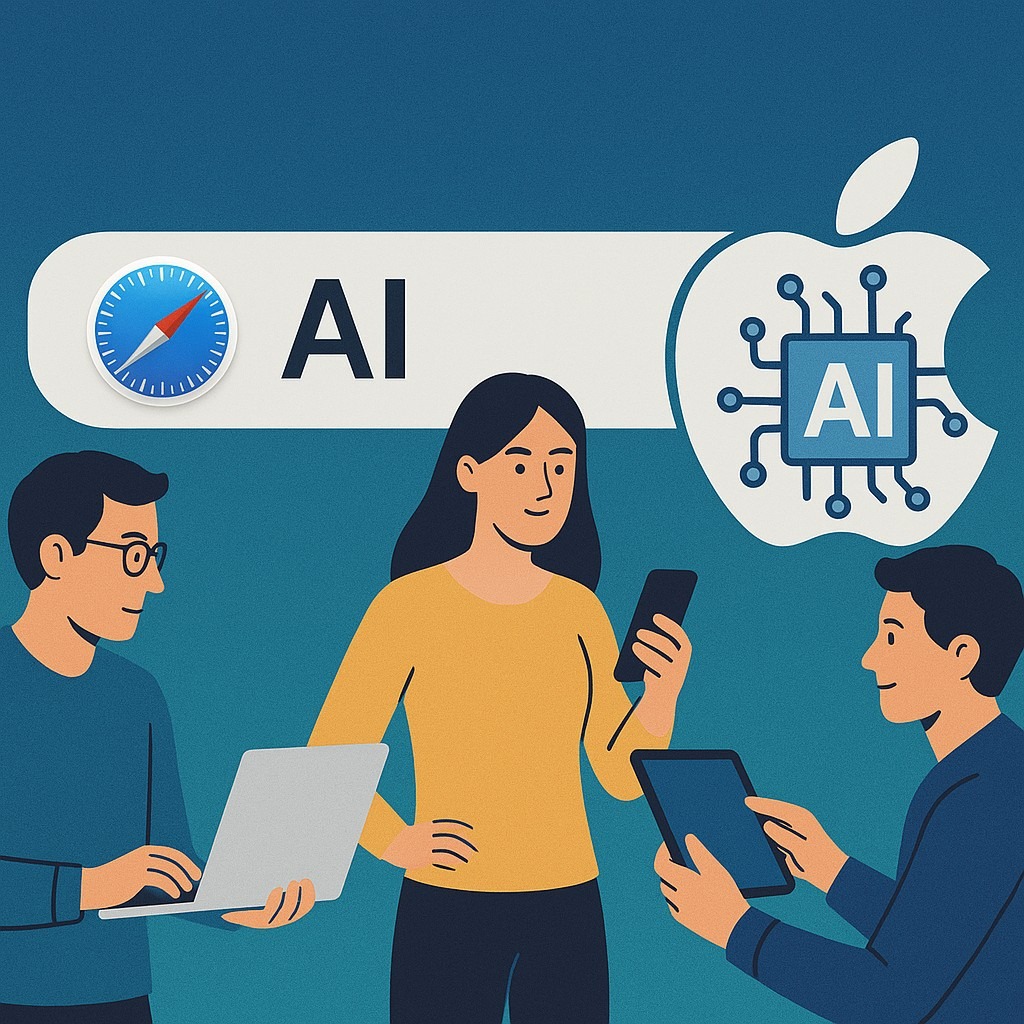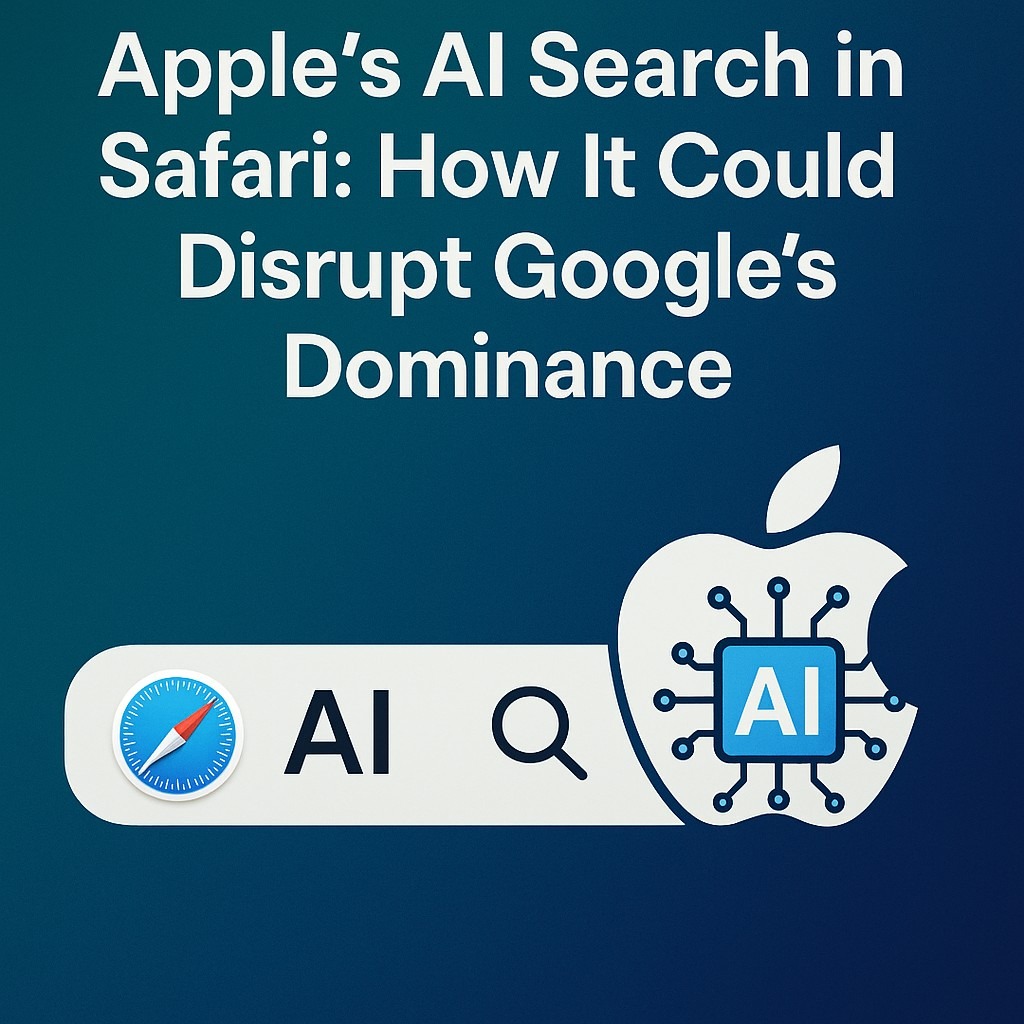In a bold move that’s shaking up the tech world, Apple plans to integrate AI-powered search directly into its Safari browser. This shift has major implications for users, developers, and especially Google—the long-reigning king of online search. With Apple stepping into the search arena, the competition is heating up fast.
Why Apple’s AI Search Matters
Apple controls both the hardware and software ecosystems for its devices. That gives it a unique advantage. By embedding AI search into Safari, Apple can offer a seamless, personalized user experience without relying on third-party engines.
This isn’t just a small upgrade. It could completely change how millions of users access information online.
According to a recent Yahoo Finance report, Google’s stock took a hit after news of Apple’s plans broke. Investors are clearly paying attention—and so should the rest of us.
What This Means for Google
Google currently pays Apple billions each year to remain the default search engine on iOS devices. If Apple replaces or minimizes that partnership, it could cost Google both money and market share.
In the short term, this move pressures Google to innovate faster. In the long term, it could weaken Google’s search dominance. Since Apple has a massive user base, even a small shift in behavior could make a huge impact.
Moreover, the timing is key. Generative AI is evolving rapidly, and both companies are racing to integrate it meaningfully. While Google continues to develop tools like Gemini, Apple’s control over device-level AI could give it the edge.
The User Experience Advantage
Apple’s focus has always been on privacy and ease of use. This new AI search feature could reflect that philosophy. Users might see faster, more relevant results tailored to their needs, without data being sent to external servers.
This aligns well with Apple’s ongoing efforts to enhance on-device intelligence. In fact, Apple’s recent M-series chips already support advanced machine learning tasks locally.
By handling search directly on the device, Apple could offer a faster and more secure experience. This could appeal especially to users wary of traditional data-driven search engines.

Potential Privacy Implications
Of course, AI search isn’t without risks. Even on-device AI can raise privacy concerns. Users will need to trust that their search behavior isn’t being tracked or monetized. Transparency and clear privacy settings will be essential.
Apple has built a reputation for prioritizing user privacy. However, it must now prove that its AI systems can maintain that standard. If successful, Apple could set a new benchmark for ethical AI search.
What Comes Next?
This move is part of a broader trend: tech giants using AI to reshape core digital experiences. Just as ChatGPT and Copilot have changed how we write, Apple’s AI may change how we search.
According to Computerworld, AI is already transforming software development. Now, it’s coming for search.
Apple’s upcoming Worldwide Developers Conference (WWDC) could reveal more details. Many expect a deeper look at the new AI search tool. If rumors are true, it may debut with iOS 18 later this year.
Final Thoughts
Apple entering the AI search space marks a major shift in tech. It signals growing competition in an area once dominated by a single player. For consumers, this could mean more innovation, better features, and a renewed focus on privacy.
Meanwhile, Google must adapt quickly to keep its lead. With Apple now in the race, the future of search just got a lot more interesting.
For more on how AI is reshaping tech, check out this New York Post article on Google’s energy push to power its AI future.

What do you think?
Would you switch to Apple’s AI search over Google? Drop your thoughts in the comments below!
Would you like a custom graphic or infographic to accompany this post?

